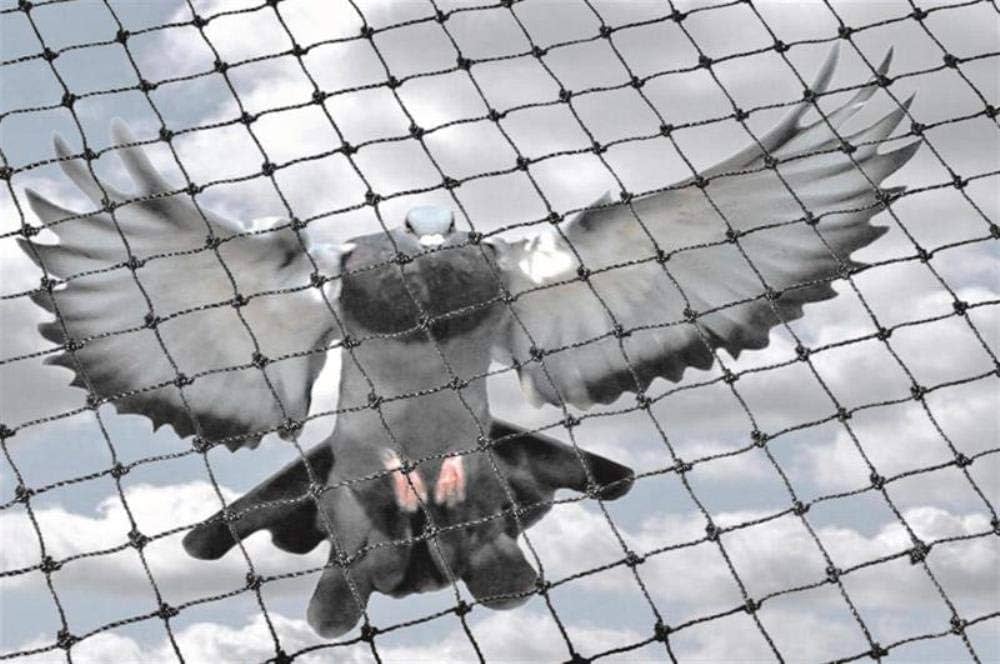Bird Netting: Effective Solution for Bird Control
Bird netting is a versatile and humane method of managing birds in areas where their presence may cause problems. It is widely used in both residential and commercial settings to keep birds away from specific areas, such as gardens, farms, warehouses, and urban buildings. By creating a barrier that prevents birds from entering, bird netting reduces the damage caused by these animals without causing them harm.
Why Bird Netting is Necessary
Birds often congregate in areas where they can find food, water, or shelter. While this can be charming in some settings, it can also create issues, especially in agricultural, industrial, and urban spaces. Bird droppings can lead to hygiene concerns, particularly in areas where food is grown, processed, or sold. Droppings can also damage buildings, monuments, and statues over time. Bird nesting can clog ventilation systems, damage machinery, and block drainage systems, leading to costly repairs. For farmers, birds can cause significant crop damage, eating or contaminating produce, and resulting in financial losses.
Benefits of Bird Netting
-
Effective Control: Bird netting is a highly effective way to manage bird presence, as it physically prevents birds from accessing specific areas. This reduces the risk of crop damage, contamination, and infrastructure issues without harming the birds.
-
Environmentally Friendly: Unlike chemicals or repellents, bird netting doesn’t pose any environmental hazards. It’s a simple mechanical barrier that doesn’t harm birds, animals, or other wildlife.
-
Cost-Efficient: While the initial installation of bird netting might seem like an expense, it often results in long-term savings by reducing the need for repairs, cleaning, or other bird control measures.
-
Customizable Solutions: Bird netting can be installed in various sizes and configurations to protect large open fields, small garden spaces, rooftops, balconies, or building facades. Netting options can vary based on the type of birds being controlled, making it adaptable to different requirements.
Types of Bird Netting
-
Agricultural Netting: For farmers, agricultural bird netting helps protect crops, fruits, and vegetables from birds like crows, pigeons, and sparrows. This netting is often UV-resistant, ensuring durability against sun exposure.
-
Structural Netting: Building owners may use structural bird netting to keep birds off ledges, rooftops, or open-air spaces. This is often used in cities to control pigeons and other urban bird species.
-
Garden Netting: Smaller, lightweight nets are available for residential gardeners to protect flowers, fruits, and vegetables from birds, especially in urban or suburban areas.
-
Aviary Netting: Aviaries, or bird enclosures, use netting to contain birds safely within a specific area. This type of netting is strong, allowing for safe confinement without risk of injury.
Installation and Maintenance
Installing bird netting requires careful planning to ensure that birds can’t bypass the net and access the protected area. The netting should be securely attached to the perimeter, and any gaps should be closed. Professional installation services are available for larger areas, but smaller residential projects can often be done by homeowners.
Maintenance is minimal but essential. Over time, weather exposure may wear down certain parts of the netting, especially if it is not UV-protected. Regular inspection ensures that the netting remains intact and continues to serve its purpose.
Legal and Ethical Considerations
Many regions have regulations regarding the humane treatment of wildlife, and bird netting complies with these by providing a non-lethal solution. In some places, certain bird species are protected, so it’s crucial to use netting in a way that doesn’t endanger them. Checking local wildlife protection laws before installation is recommended to avoid any potential legal issues.
Conclusion
Bird netting is an effective, cost-efficient, and humane way to manage bird populations in a variety of settings. By preventing birds from accessing specific areas, it helps reduce property damage, hygiene issues, and crop losses, offering a long-lasting solution. Its versatility makes it suitable for applications ranging from small residential gardens to large commercial buildings, proving to be a valuable investment for those seeking an environmentally responsible way to address bird-related challenges.

